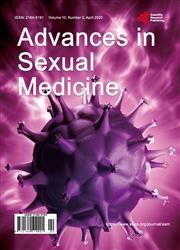Protective Sexual Behaviors and Their Motives, in University Students in the Health Area
引用次数: 0
Abstract
Sexually transmitted infections (STIs) and unwanted pregnancy (UP) are becoming a problem that affects significantly the younger segment of the population so, not only in the aspect of health, but in the development of its future life both emotional and school and work. Despite easy access to information, young people still have risky sexual practices. This research highlights protective practices with the aim of developing information and training tools that help them avoid risky behaviors that lead to dangerous situations in health and its future. It was a descriptive study with students who have recently entered of the Faculty of Medicine enrolled in school cycle in 2015 in the bachelor’s degree in Medicine and surgery, Nutrition and dietetics, and Rehabilitation programs who agreed to participate by letter of informed consent to respond to the Instrument for the Evaluation of Psychological Variables and Sexual Risk Behaviors. There were 221 participants, 166 in Medicine and surgery, 28 in Nutrition and dietetics, and 27 in Rehabilitation with an average of 18.6 years, 51% male and 49% female. A protective behavior was not having had sex with penetration (72.3%), due to wanting to have them with whom they are in love and to avoid STIs more frequently in female; another protective behavior was not having had oral sex with occasional partners or unprotected sex workers (15.4%); the reasons were to have wanted to use and that the couple asked him to use it, to avoid sexually transmitted infections because the couple’s sexual history is unknown. Regarding the likelihood of having sexual penetration (SP), participants who have not had it were found that: the men had less possibility to inquire about their partner’s sexual history, to reject the proposal to have SP and to refuse caresses in sensitive areas of the woman’s body; when asked about the likelihood of asking your partner to use a condom in their sexual relations, both men and women agreed that it would be quite likely that they would do so, more frequently in women. It concludes by emphasizing that prevention remains the cheapest, easiest, most reliable and safest tool against STIs and UP.卫生区大学生保护性行为及其动机
性传播感染(STIs)和意外怀孕(UP)正在成为一个严重影响年轻人群的问题,不仅在健康方面,而且在其未来生活的发展,包括情感、学校和工作方面。尽管获取信息很容易,但年轻人仍然有危险的性行为。这项研究强调了保护措施,目的是开发信息和培训工具,帮助他们避免导致健康及其未来危险情况的危险行为。这是一项描述性研究,对象是最近进入医学院的学生,他们于2015年在医学和外科、营养和营养学以及康复项目的学士学位学习,并同意通过知情同意书参与对心理变量和性风险行为评估工具的回应。共有221名参与者,其中166人在医学和外科,28人在营养和营养学,27人在康复,平均年龄18.6岁,51%为男性,49%为女性。保护性行为是没有发生过渗透性行为(72.3%),因为他们想和自己相爱的人发生性行为,并更频繁地避免女性性传播感染;另一种保护行为是没有与偶尔的伴侣或无保护的性工作者发生口交(15.4%);原因是想使用,这对夫妇要求他使用,以避免性传播感染,因为这对夫妇的性病史未知。关于性渗透的可能性,未进行过性渗透的参与者发现:男性询问伴侣性史、拒绝进行性渗透的提议以及拒绝在女性身体敏感部位进行爱抚的可能性较小;当被问及在性关系中要求伴侣使用避孕套的可能性时,男性和女性都同意,他们很可能会这样做,在女性身上更频繁。报告最后强调,预防仍然是对抗性传播感染和UP的最便宜、最简单、最可靠和最安全的工具。
本文章由计算机程序翻译,如有差异,请以英文原文为准。
求助全文
约1分钟内获得全文
求助全文

 求助内容:
求助内容: 应助结果提醒方式:
应助结果提醒方式:


